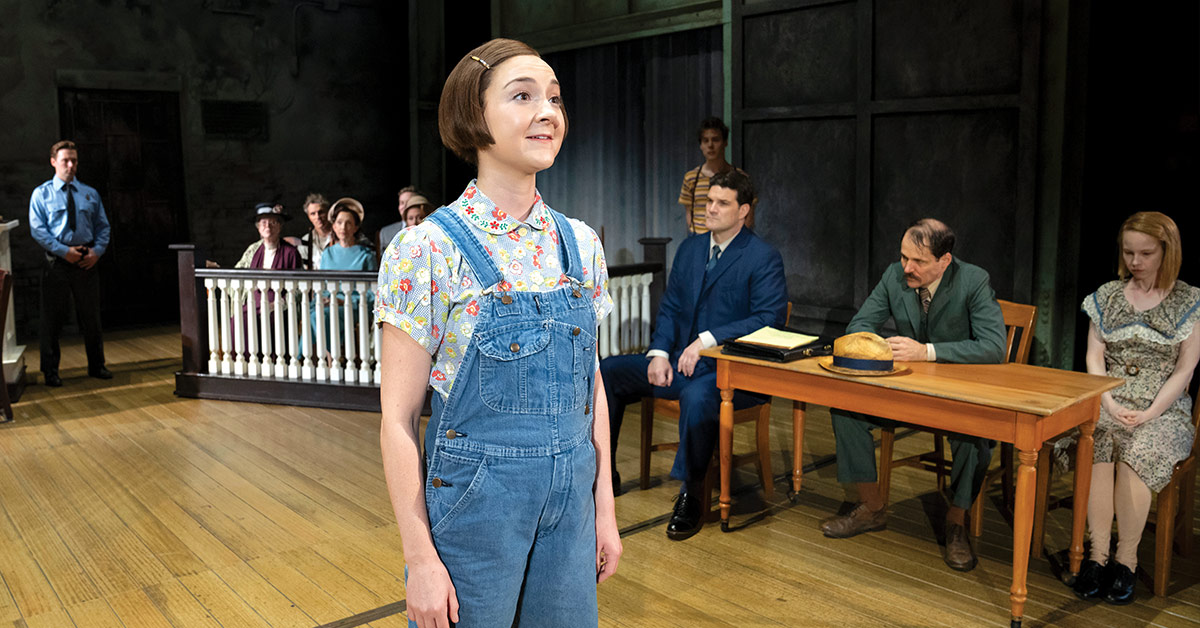"She only wrote one good book. But if you write a book that good, you only need to do it once.” Neil Gaiman said that of Hope Mirrlees, author of Lud-in-the-Mist, but he could as easily have been talking about Harper Lee.
To Kill A Mockingbird may be the only book Lee ever wrote—its purported sequel, Go Set A Watchman, is widely believed to be an inferior early draft rather than a completed manuscript—but it’s good all the way through, from roots to crown.
Set in Alabama in the heart of the Great Depression, To Kill A Mockingbird is narrated by one of the greatest characters in American literature: Scout Finch, a six-year-old tomboy. Scout’s father, Atticus Finch, is appointed as defender of Tom Robinson, a Black man wrongly accused of rape. What follows is a story that, in its unearthing of difficult truths, remains all too relevant to this day.
In 2018, a play based on the novel opened on Broadway. Aaron Sorkin, who adapted it, had made a name for himself over the years through writing that was earnest, witty, and sometimes self-righteously angry. Most prominent was his work on The West Wing, a show starring Martin Sheen as President of the United States and focusing on the difficult but important work of translating idealism into practicality.
Sorkin’s play differed from the novel by centering Atticus, the lawyer, and not his daughter, Scout, a change significant enough to result in a lawsuit from the estate, who felt the play wasn’t faithful enough to its source material (the lawsuit was later settled). By stripping away some material, Sorkin created something closer to a courtroom drama, one in which ideas and words were given their full due. Critics were generally positive; NPR called it “one of the greatest plays in history.” The production won the Pulitzer Prize.
From April 23rd-April 28th, the touring Broadway production will be onstage at DeVos Performance Hall thanks to Broadway Grand Rapids. It’s recommended that attendees be at least twelve years old, given the racially charged language and sexual abuse references.
Richard Thomas stars. The Emmy Award-winning actor knows he has difficult shoes to fill: those of Gregory Peck, who starred in the beloved 1962 film version. Thomas told Milwaukee magazine that “For any actor…to have created a part that lives on, one that people identify with and has a life of it own, is one of the greatest privileges any actor could experience.” By all accounts, he’s taken that iconic role and made it his own.
At 2 hours and 50 minutes, it’s a long show; but that’s not unusual. What’s less common is for Broadway Grand Rapids to feature a non-musical play. It’s a tribute both to the success of this adaptation and to the lasting power of Lee’s work that its spotlight will be trained not on a high-kicking revue or on a soaring group of singers but on a song-less drama set simultaneously in the world of almost a century past and, painfully, today.
To Kill A Mockingbird
Broadway Grand Rapids
DeVos Performance Hall
303 Monroe Ave. NW, Grand Rapids
April 23-28
broadwaygrandrapids.com





